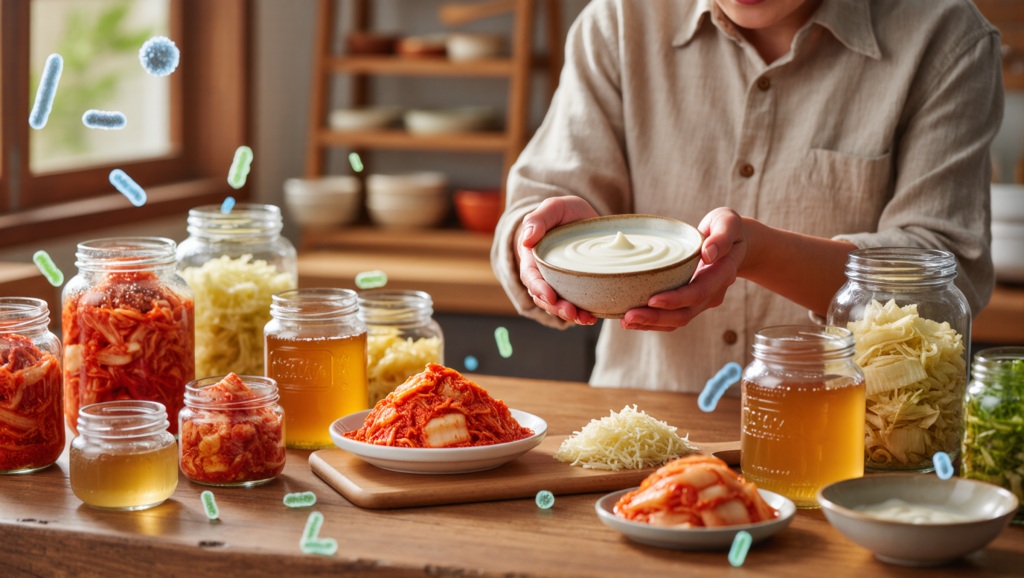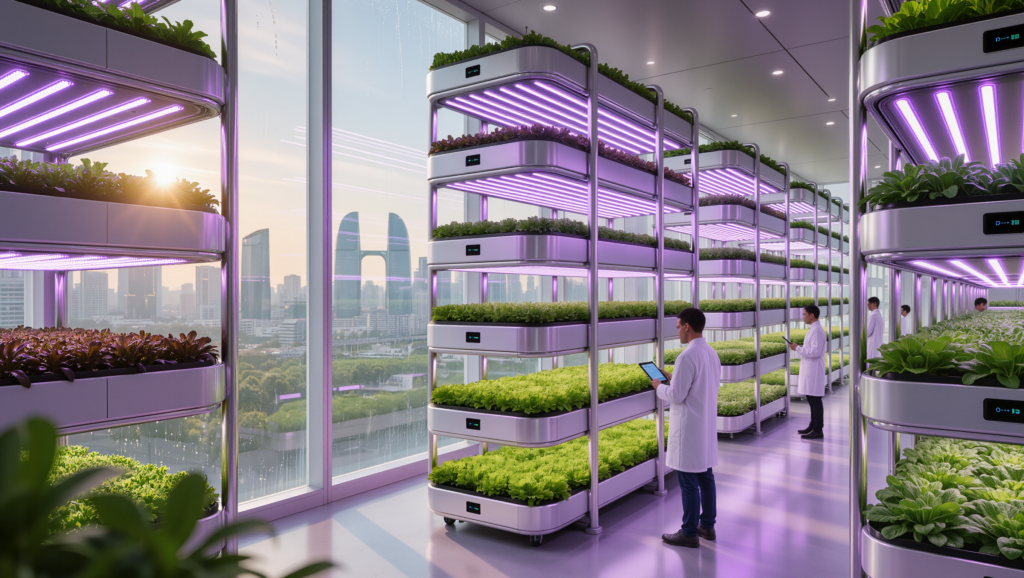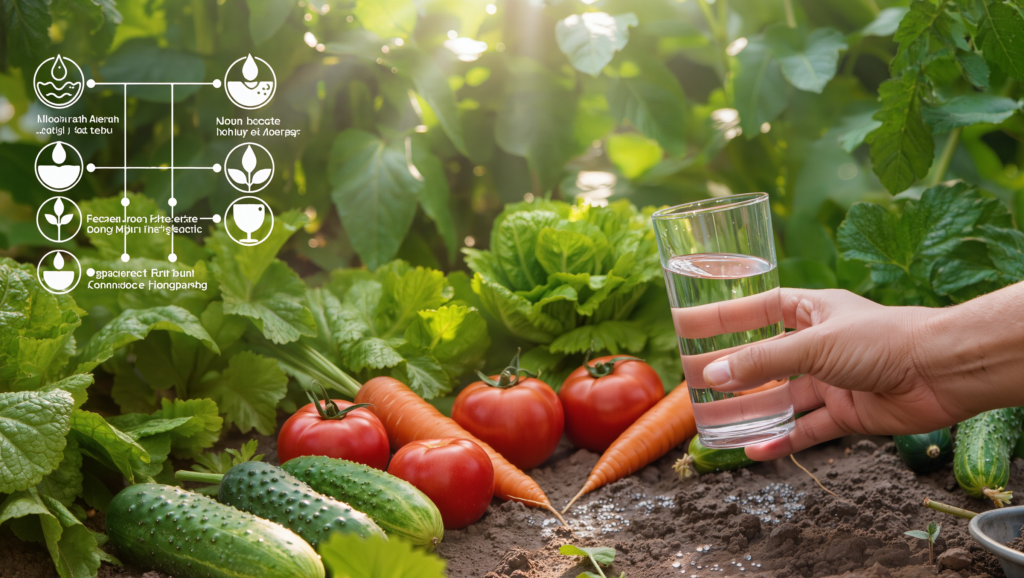Forget bland self-help tips and prescription-only fixes—what you eat might be the most surprising weapon in the battle against social anxiety. In the last decade, research has uncovered a genuinely bizarre connection: fermented foods can influence your mood, your ability to socialize, and even your confidence in public settings. The secret isn’t just in their tangy taste—it lies deep within the living microbes that interact with your gut…and ultimately, your brain.
Let’s dig into the science, dispel myths, and decode why kimchi, yogurt, sauerkraut, and other fermented staples are changing the conversation around social anxiety.
What Are Fermented Foods and How Do They Work?
Fermented foods are produced by microbes—bacteria and/or yeast—that break down sugars and starches, transforming ordinary ingredients into nutritional powerhouses. Examples include:
- Yogurt, kefir (fermented milk)
- Kimchi, sauerkraut, pickles (veggies fermented with salt)
- Miso, tempeh, natto (fermented soy)
- Kombucha (fermented tea)
During fermentation, beneficial bacteria like Lactobacillus and Bifidobacterium multiply, producing enzymes, bioactive peptides, vitamins, and neurotransmitters that can directly connect to your gut and, through a mysterious “gut-brain axis,” influence how you feel.
The Gut-Brain Axis: How Fermented Foods Connect Mood and Mind
You’re not just what you eat—you’re what your gut microbes transmit to your brain. The “gut-brain axis” is a two-way communication highway powered by nerves, hormones, and—most importantly—immune signals.
When you introduce new, friendly microbes via fermented foods, you:
- Diversify and strengthen your gut flora
- Reduce the risk of “leaky gut” and systemic inflammation
- Trigger a cascade of neurochemical changes: more serotonin, GABA, neuropeptide-Y, and changes in stress hormones
These changes feed back to the brain, influencing anxiety, social cognition, and emotional stability.
Social Anxiety: When Diet Makes the Difference
Social anxiety—a persistent fear of social embarrassment, rejection, or public scrutiny—affects millions. Standard treatments include talk therapy (CBT) and antidepressant or anxiolytic medications, but recent studies indicate diet, and specifically fermented foods, may offer profound, low-risk support.
Key Study: College Students, Kimchi, and Calm
A game-changing cross-sectional study from College of William & Mary and University of Maryland followed 710 young adults and found those who ate more fermented foods (yogurt, sauerkraut, miso, etc.) reported significantly lower levels of social anxiety—especially if they were genetically predisposed to anxiety (high neuroticism).
Intriguingly, for those more prone to worry or shyness, every extra serving of fermented food brought their social anxiety scores closer to those of their more relaxed peers. The mechanism? These foods increased friendly gut bacteria that help the body produce GABA, a neurotransmitter targeted by many anxiety medications, but via the eaters’ own biology.
“It is likely that the probiotics in fermented foods are favorably changing the environment in the gut, and changes in the gut in turn influence social anxiety.” — Psychologist Matthew Hilimire, lead study author.
The Bizarre Mechanism: Microbes Making You Braver
Why do fermented foods work so differently from drugs?
- Microbial production of neurotransmitters: Certain probiotic bacteria in fermented foods actively manufacture GABA, serotonin, and dopamine from gut-friendly fibers and amino acids.
- Immune modulation: Healthy gut microbes lower inflammation, which is powerfully linked to anxiety. Less inflammation, more emotional resilience.
- Hormonal tuning: Fermented foods influence gut hormones—GLP-1 and neuropeptide-Y—shaping appetite, stress, and mood at a molecular level.
Unlike quick-fix stimulants, fermented foods can help remold your baseline brain chemistry, making you less anxious in crowds or stressful social settings over time.
Not All Studies Agree—The Caveats
A recent study reveals a complex landscape, with some participants reporting more anxiety symptoms with higher fermented food intake, especially with uncontrolled or wild ferments (e.g., homemade kvass or non-pasteurised beer). Misinterpretation, contamination, or overconsumption—and individual gut differences—may explain the mixed results. Experts recommend focusing on proven, high-quality ferments: yogurt, kimchi, tempeh, and sauerkraut, ensuring the products contain live cultures.
Physical activity, personality, and overall diet quality also moderate the effect—meaning there’s no “magic” food for everyone.
Fermented Foods vs. Probiotic Supplements: Form Matters!
Real fermented foods contain bioactive proteins and peptides that supplements can lack—and these proteins, alongside diverse live microbes, may be critical for mental health benefits. If you’re looking to hack your social confidence, real food appears superior to capsules.
The Top Mood-Friendly Ferments (And How to Choose Them)
Favor fermented foods with live cultures, minimal processing, and no excessive salt or sugar:
- Yogurt and kefir (dairy or plant-based)
- Kimchi and sauerkraut (go raw and unpasteurized)
- Miso and tempeh (add to soups or stir-fries)
- Kombucha (avoid brands too high in added sugar)
Dietitians suggest 1–2 servings daily as part of a diverse, plant-rich routine.
How Fast Can You Expect to Feel Results?
For most, it takes 2–4 weeks of regular fermented food intake to start noticing easier social interactions and less “overthinking.” Animal studies show measurable anxiety reduction after just 14 days of probiotic-rich diets; human studies find improvements within 2–8 weeks. Benefits build with consistency and a steady supply of gut-loving fiber and prebiotic foods.
Practical Considerations and Cautions
- Start slow: Your gut may need time to adjust; bloating or temporary discomfort is common.
- Avoid if immunocompromised or allergic: Consult a doctor if you have health conditions impacting gut tolerance.
- Diversity is key: Mix up your fermented foods for the best brain and gut benefits.
The Bottom Line: Your Gut Is Your Social Secret Weapon
From kimchi to kombucha, fermented foods are more than culinary oddities—they’re functional foods that reshape your mind from the inside out. While fermented foods alone might not replace therapy or medications for severe social anxiety, they offer a genuine, science-backed strategy to bolster confidence, calm, and connection. Embrace the bizarre, nurture your microbiome, and you may find a braver you waiting at the next social event.








